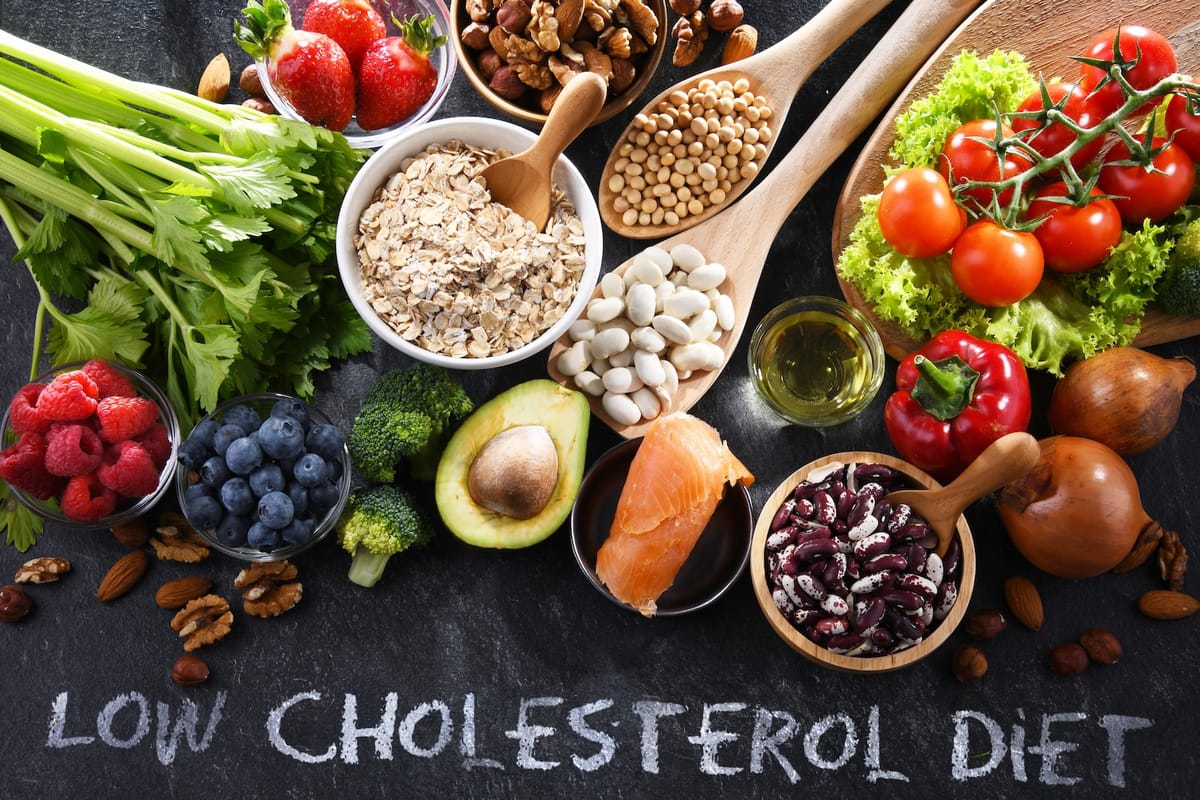

Understanding Cholesterol and Heart Health
Cholesterol is a waxy substance found in your blood that's essential for building healthy cells. However, high cholesterol levels can lead to plaque buildup in your arteries, increasing your risk of heart disease. This condition, known as atherosclerosis, can narrow your arteries, making it harder for blood to flow through. Over time, this can lead to heart attacks, strokes, and other health problems.
While genetics can play a role, lifestyle choices like diet and exercise are crucial in managing cholesterol. A heart-healthy diet can significantly reduce your risk of developing heart disease. This includes incorporating foods that lower cholesterol levels and avoiding those that can raise them.
Powerful Foods for Lowering Cholesterol: Your Dietary Allies
The good news is that many delicious foods can help lower your cholesterol levels. Here are 20 of the most effective ones, categorized for your convenience:
1. Soluble Fiber Champions
Soluble fiber, found in various plant-based foods, is a powerful ally in fighting high cholesterol. Here's why: It binds to cholesterol in your gut, preventing its absorption into your bloodstream. This leads to lower cholesterol levels.
- Oats: Start your day with a bowl of oatmeal, a great source of soluble fiber. You can enjoy it in various ways – hot or cold, with fruit, nuts, or seeds.
- Beans: Whether lentils, black beans, kidney beans, or chickpeas, these legumes are packed with soluble fiber and other nutrients that support heart health. Add them to soups, stews, salads, or enjoy them as a side dish.
- Apples: An apple a day may keep the doctor away, especially when it comes to cholesterol. The soluble fiber, particularly pectin, in apples can effectively lower cholesterol levels.
- Avocados: These creamy fruits are more than just delicious. They are also rich in monounsaturated fats and fiber, both beneficial for heart health. Enjoy them in guacamole, salads, or as a topping for toast.
2. Nutty Delights
Nuts are a healthy and versatile snack that can effortlessly be incorporated into your daily routine. They are packed with heart-healthy fats, fiber, and other beneficial nutrients.
- Almonds: A handful of almonds provides a healthy dose of fiber and monounsaturated fats, known for their cholesterol-lowering effects. Enjoy them as a snack, add them to salads, or use them in baking.
- Walnuts: These nuts are rich in omega-3 fatty acids, which may help reduce LDL (bad) cholesterol and raise HDL (good) cholesterol. Add them to salads, yogurt, or use them in baking.
- Pecans: These crunchy nuts are a good source of fiber and monounsaturated fats, making them a heart-healthy choice. Enjoy them as a snack or add them to trail mix.
3. Seeds of Goodness
Don't underestimate the power of seeds. They are packed with nutrients and can be easily incorporated into various meals and snacks.
- Chia Seeds: These tiny seeds are packed with fiber and omega-3 fatty acids, making them a great choice for lowering cholesterol. Add them to smoothies, yogurt, or oatmeal.
- Flaxseeds: Flaxseeds are rich in fiber and omega-3 fatty acids, making them a powerful tool in fighting high cholesterol. Ground flaxseeds are easier to digest, so use them in baking, smoothies, or sprinkle them on your salads.
- Sunflower Seeds: These crunchy seeds are a good source of fiber, vitamin E, and magnesium, all contributing to heart health. Enjoy them as a snack, add them to salads, or use them in baked goods.
4. Fatty Fish for a Healthy Heart
Fatty fish, such as salmon, tuna, and mackerel, are rich in omega-3 fatty acids, which have been shown to lower triglycerides and improve HDL (good) cholesterol levels. Aim for at least two servings of fatty fish per week.
5. Soy Products: Cholesterol-Lowering Powerhouses
Soy products, like tofu, tempeh, and soy milk, are excellent sources of protein and fiber. They contain plant-based compounds that help lower cholesterol and improve heart health.
6. The Power of Garlic
Garlic is much more than just a culinary ingredient; it's known for its heart-healthy benefits. Garlic contains allicin, a compound that may help lower cholesterol levels and reduce blood pressure.
7. Embrace the Goodness of Berries
Berries, like blueberries, strawberries, raspberries, and blackberries, are loaded with antioxidants and fiber that can help lower cholesterol and promote heart health.
8. Whole Grains for a Heart-Healthy Diet
Whole grains, such as brown rice, quinoa, and whole-wheat bread, are packed with fiber, which helps lower cholesterol. Choose whole grain options whenever possible to reap the benefits.
9. The Power of Plant Sterols
Plant sterols, found in foods like nuts and seeds, can help lower cholesterol by interfering with cholesterol absorption in your gut.
Beyond Food: A Holistic Approach to Cholesterol Management
While dietary changes are crucial, a comprehensive approach to cholesterol management is essential. Complement your diet with these steps:
- Regular Exercise: Engage in at least 30 minutes of moderate-intensity exercise most days of the week. This can help lower cholesterol levels and improve heart health.
- Maintain a Healthy Weight: Losing even a small amount of weight can significantly impact your cholesterol levels. Aim for a gradual and sustainable weight loss plan.
- Quit Smoking: Smoking damages your blood vessels and increases your risk of heart disease. Quitting smoking is one of the best things you can do for your heart health.
- Stress Management: Chronic stress can raise cholesterol levels. Find healthy ways to manage stress, such as meditation, yoga, or spending time in nature.
- Regular Medical Checkups: See your doctor for regular blood tests to monitor your cholesterol levels. This allows for early detection and management of any issues.
By incorporating these foods and lifestyle changes into your routine, you can take control of your cholesterol levels and significantly reduce your risk of heart disease. Remember, a healthy heart is a happy heart.
Dues are $12 per year. Member benefits:
✅ Ad-Free Website Viewing
✅ Advocacy for Republican Seniors
✅ 120+ Senior Discounts
✅ Member Only Newsletters